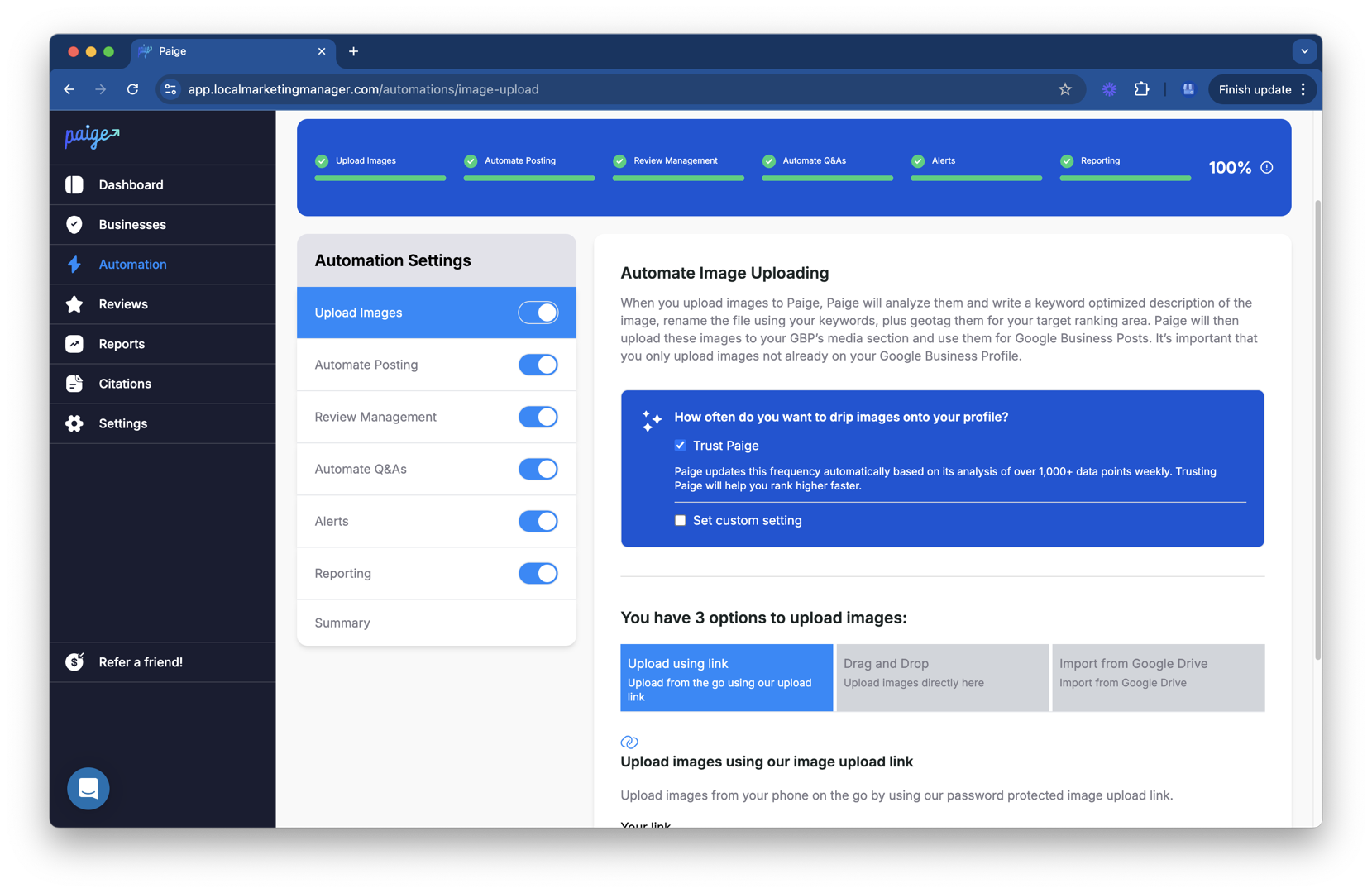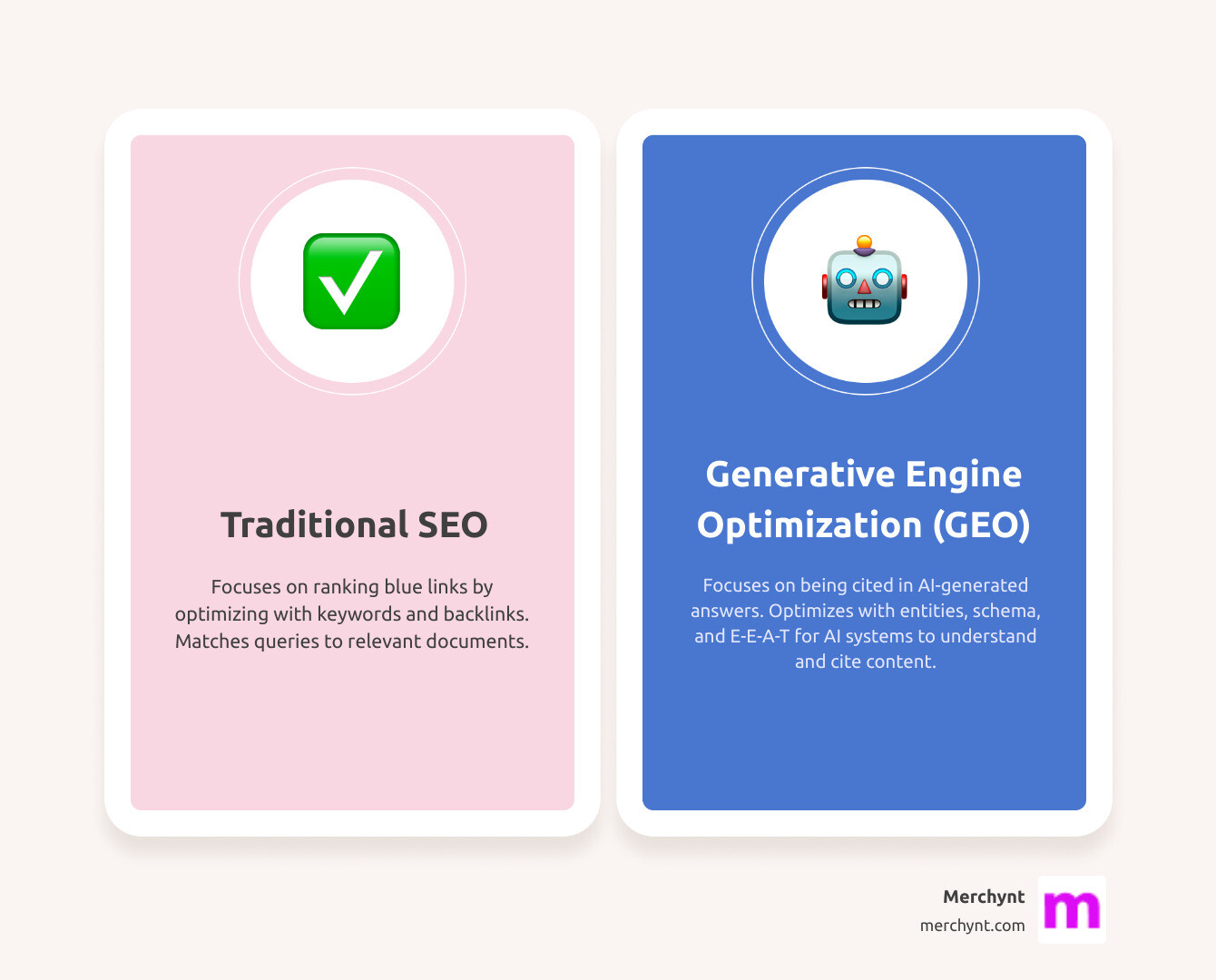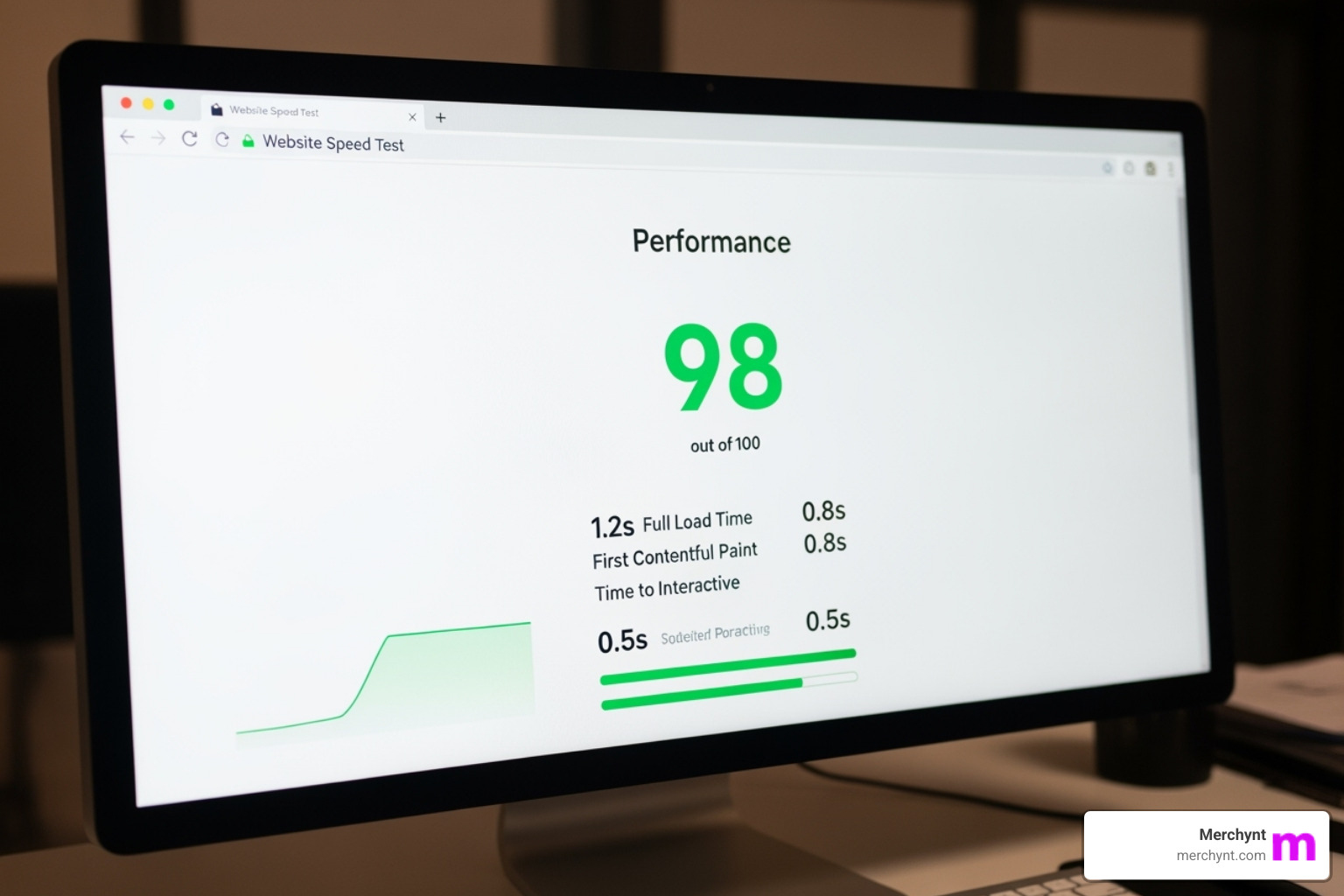
Why Generative Engine Optimization is Reshaping Local Search
Geo entity and schema optimization is the key to appearing in AI-generated search results. While traditional SEO targeted blue links, today's landscape is dominated by AI systems like Google's AI Overviews, ChatGPT, and Perplexity. These platforms provide direct answers, and the businesses they cite are the ones that win.
Quick Answer: Geo Entity and Schema Optimization Essentials
- Entities over keywords: Focus on clear concepts (your business, location, services).
- Structured data markup: Use LocalBusiness, Organization, and Service schema.
- E-E-A-T signals: Build Experience, Expertise, Authoritativeness, and Trust.
- AI-friendly content: Use clear headings, short paragraphs, and answer-first formatting.
- Technical optimization: Ensure fast load times and mobile-friendliness.
Generative engines have source inclusion rates over 90%, but competition is fierce. Each AI has preferences: ChatGPT favors authoritative sources, Perplexity likes user-generated content, and Google AI Overviews require strict entity validation.
This shift is critical for survival. Gartner predicts a 25% drop in traditional search volume by 2026, and ChatGPT has over 180 million monthly users. Mastering geo entity and schema optimization is essential for future dominance.
I'm Justin Silverman, and I built Merchynt into a 7-figure business by leveraging these strategies. I launched Paige, the world's first fully automated local SEO AI platform, to help businesses master this new frontier of search.

Understanding GEO: How AI Engines Interpret Your Content
Think of geo entity and schema optimization as teaching AI to understand your business like a local expert. When someone asks Google's AI or ChatGPT for local services, you want them to confidently cite your business.
Generative Engine Optimization (GEO) is a shift from ranking in a list of links to becoming the source that AI engines trust and cite for direct answers. Traditional SEO matched keywords to documents; GEO helps AI understand context, relationships, and expertise. When someone searches for "best plumber near me," Google's AI Overview synthesizes information from multiple trusted sources to provide a comprehensive answer with citations.
Each AI engine has unique preferences. Our analysis at Merchynt shows:
- ChatGPT gravitates toward authoritative sources like Wikipedia and well-structured FAQ content.
- Perplexity frequently pulls from Reddit, LinkedIn, and YouTube, valuing recent, conversational content.
- Google AI Overviews use the widest range of sources but demand rigorous validation for accuracy and authority.
This diversity means your geo entity and schema optimization strategy must be multifaceted. A framework for GEO was introduced in a research paper that helps clarify these nuances.
Why Entities are the New Keywords for AI
AI engines think in entities—specific, identifiable concepts. Google defines an SEO entity as "a thing or concept that is singular, unique, well-defined and distinguishable." For example, "plumber" is a keyword, but "Joe's Emergency Plumbing in Brooklyn" is an entity. AI systems build knowledge graphs connecting these entities, linking your business to its location, services, and expertise.

Consistency is everything. Using different names for your business confuses AI. Contextual relationships also matter; when AI sees your business mentioned with terms like "emergency repairs" and "Brooklyn," it builds confidence. Tools like Paige are invaluable for ensuring your entity information remains consistent across all digital touchpoints.
The Critical Role of E-E-A-T in Building AI Trust
If entities explain what you do, E-E-A-T (Experience, Expertise, Authoritativeness, Trustworthiness) helps AI decide whether to trust you. AI systems are programmed to avoid "hallucination" and heavily favor content with strong credibility signals.
- Experience: Show you've done the work with case studies, photos of jobs, and mentioning your years in business.
- Expertise: Showcase qualifications with clear author bios, certifications, and credentials. Detailed "About Us" pages and team profiles lead to more AI citations.
- Authoritativeness: Build this over time with high-quality content and recognition from other trusted sources, like links from industry publications.
- Trustworthiness: This comes from accuracy and transparency. Factual accuracy is non-negotiable. Use expert quotes and cite sources to provide validation.
Focusing on E-E-A-T benefits both human readers and AI engines, creating a win-win for long-term success.
Your Blueprint for Geo Entity and Schema Optimization
Now that we understand the "why" of GEO, let's cover the "how." The foundation of geo entity and schema optimization is structured data markup—a way to speak directly to AI in its own language.
Schema markup acts as your business card for AI, providing explicit instructions about your company, services, and location. The results are clear: structured data has been shown to boost AI citation by 53%. We use Schema.org's vocabulary, primarily in the Google-preferred JSON-LD format, to embed machine-readable clues on your web pages.

For streamlined implementation, Merchynt's ProfilePro Chrome extension offers efficient schema management directly in your browser, removing technical headaches. For validation, use Schema.org's Validator and Google's Rich Results Test.
Choosing the Right Schema for Maximum Impact
For local businesses, precision in schema selection is key for geo entity and schema optimization.
- LocalBusiness Schema: The cornerstone of your strategy. It defines your NAP (name, address, phone), hours, services, and reviews. This is your primary entity signal, as detailed in this comprehensive LocalBusiness Schema guide.
- Organization Schema: Defines your company as a distinct entity on your homepage and About Us pages.
- Service Schema: Details your specific offerings, like "automated Google Business Profile management," with descriptions and pricing.
- FAQPage Schema: Turns your Q&A content into citation gold for AI engines.
- HowTo Schema: Ideal for step-by-step guides, making your content a go-to source for instructional queries.
Connecting these schemas is crucial. Linking your Service schema to your LocalBusiness schema helps AI understand the relationship between your business and its offerings. This is vital when you Optimize Your Google Business Profile the Right Way.
Best Practices for Implementing Geo Entity and Schema Optimization
Effective implementation comes down to strategic execution.
- Consistency is critical: Your NAP data must be identical everywhere.
- Use JSON-LD format: It's cleaner and preferred by Google.
- Be specific: Use precise subtypes like "Dentist" or "MarketingAgency" instead of a generic "LocalBusiness."
- Be complete: Include details like price ranges, service areas, and your Google Business Profile CID.
- Nest properly: Link schemas to create rich entity relationships (e.g., Person schemas within your Organization).
- Always validate: Use Schema.org's Validator and Google's Rich Results Tester. Follow Google's Structured Data Guidelines.
For businesses serious about local optimization, Paige by Merchynt automates much of this schema management, ensuring your entities remain structured and updated.
Structuring Content for AI Readability
Beyond schema, your content's structure determines if AI can parse it.
- Clear heading hierarchies (H1-H6) create a logical flow.
- Short, focused paragraphs (2-4 lines) are more effective than walls of text.
- Answer-first writing increases citation potential. Start with a direct answer, then elaborate.
- Question-based subheadings align with how users search.
- Clear definitions of key terms position you as an authority.
This approach makes your content both human-readable and machine-readable, maximizing your AI citation potential.
Boost Your GEO with Advanced Technical Signals
While schema and content are foundational for geo entity and schema optimization, technical SEO elements are the heroes that seal the deal. If your technical infrastructure is weak, AI engines may skip your content entirely. We've seen this repeatedly in our Local SEO Marketing work.
AI engines are picky, processing millions of pages and making split-second decisions. Site performance, credibility, and technical health act as gatekeepers, determining if your content is even considered for AI-generated answers.

Building Credibility and Authority for AI Engines
AI engines are trained to be skeptical and look for proof of trustworthiness.
- Authoritative backlinks from reputable sites signal that your content is valued.
- Expert quotes and cited third-party studies provide a trail of verification for AI.
- Customer reviews and testimonials act as social proof, especially for platforms like Perplexity that value user-generated content.
- Digital PR efforts that secure mentions on credible news sites build authority signals.
- Internal linking within topic clusters shows depth and context, strengthening your expertise.
Automating Your Local Geo Entity and Schema Optimization
Managing geo entity and schema optimization can be overwhelming, but we've built tools to handle it.
Start by understanding your current standing with our free GBP Audit Tool by Paige, the best choice for an in-depth analysis of your Google Business Profile. This AI-powered solution identifies all the key areas for improvement that are holding you back.
Once you know what to fix, Paige steps in as the automated solution to fix all the issues the GBP Audit Tool finds. Paige is the only true automated AI SEO tool on the market, fixing and optimizing your local GEO and schema automatically. It ensures NAP consistency, optimizes services with schema, and refines your local entities to rank you higher on Google Search and Maps.
For competitive insights, our Heatmap Audit Tool shows where you rank in specific geographic areas, providing a clear roadmap for your geo entity and schema optimization efforts.
The Need for Speed: Site Performance as a GEO Factor
Speed is a make-or-break factor. Generative engines will move on from slow, unstable sites.
Core Web Vitals are the foundation of technical GEO. We aim for a Time to First Byte (TTFB) under 200ms and a Largest Contentful Paint (LCP) under 2.5 seconds. Achieving this requires:
- Image compression and modern formats like WebP.
- Content Delivery Networks (CDNs) to reduce latency.
- Eliminating render-blocking resources by optimizing CSS and JavaScript.
A fast, responsive mobile-friendly experience is also essential, as many AI queries originate from mobile devices. Poor performance can kill your GEO visibility before it even has a chance.
Measuring GEO Success and Avoiding Common Mistakes
The shift to geo entity and schema optimization requires rethinking how we measure success. Traditional metrics like keyword rankings are only half the story. The real goal is to track how often AI engines cite and use your content. Being featured in an AI-generated answer is more valuable than a traditional blue link.
Here's how the metrics landscape has transformed:
| Metric Type | Traditional SEO Metrics | Generative Engine Optimization (GEO) Metrics |
|---|---|---|
| Visibility | Keyword Rankings, SERP Positions | AI Answer Inclusion Rate, Citation Frequency, AI Answer Impression Share |
| Engagement | Organic Traffic, CTR | AI-Driven Referral Traffic, Brand Mentions in AI, Featured Snippet Retention |
| Authority | Domain Authority, Backlinks | Sentiment/Accuracy Scoring of Citations, E-E-A-T Signals |
| Content Scope | Keyword Density, Content Length | Entity Clarity, Structured Data Adoption, Content Freshness |
Key Performance Indicators for Your GEO Strategy
Tracking geo entity and schema optimization success requires focusing on new KPIs.
- AI Answer Inclusion Rate: Our north star metric. How often does your business appear in AI-generated answers for target queries?
- Citation Frequency: How many times do AI engines explicitly cite your content as a source? Proper schema is crucial here.
- Brand Mentions in AI: How often does your brand appear in AI summaries? This builds awareness and authority.
- Featured Snippet Retention: These snippets often feed directly into AI Overviews, so holding them is critical.
- Referral Traffic from AI: This traffic is highly qualified, as users have already seen you positioned as an authority.
We also track the sentiment and accuracy of citations to ensure your content is used correctly and positively.
Common GEO Mistakes That Kill Your Visibility
After helping hundreds of businesses with Paige, we've seen the same avoidable mistakes kill GEO visibility.
- Incorrect schema implementation: Using the wrong type, validation errors, or inconsistent data can harm visibility.
- Inconsistent entity data: Variations in your business name, address, or phone number across platforms confuse AI. Our GBP Audit Tool by Paige performs detailed consistency checks to prevent this.
- Ignoring E-E-A-T signals: Content without clear author credentials or credible sources sends red flags to AI systems.
- Poor technical infrastructure: Slow load times or crawl errors can disqualify even the best content.
- Thin or unstructured content: Content that lacks depth or proper formatting is nearly impossible for AI to synthesize.
Modern tools like Paige automatically prevent most of these mistakes. Our automated system ensures your schema, technical signals, and entity data remain consistent and optimized 24/7.
Frequently Asked Questions about GEO
How does GEO differ from AI SEO and AEO?
It's easy to get these terms confused. Here's a quick breakdown:
- Generative Engine Optimization (GEO) is about becoming the trusted source that AI systems cite in their generated answers. It's about optimizing your content so large language models can understand and reference it.
- AI SEO is about using AI to make traditional SEO work smarter and faster. For example, our Paige platform uses AI to automate Google Business Profile management and other local SEO tasks.
- Answer Engine Optimization (AEO) focuses on capturing direct answer spots in traditional search, like featured snippets and "People Also Ask" boxes.
While they all work together, geo entity and schema optimization (GEO) is the new frontier, positioning you to be the answer that AI provides.
What are the most important schema types for a local business?
For a local business, these schema types are crucial:
- LocalBusiness Schema: This is your foundation. It tells AI your location, hours, contact details, and services.
- Service Schema: This is incredibly powerful for describing each specific service you offer, allowing AI to match you to relevant queries.
- Review Schema (AggregateRating): This builds trust by showcasing customer ratings directly to AI engines, which favor credible sources.
- FAQPage Schema: This is gold for geo entity and schema optimization. AI can pull your marked-up questions and answers directly into its responses.
- Organization Schema: This defines your overall business entity and brand identity.
Using these together creates a complete picture of your business for AI. Our ProfilePro Chrome extension simplifies the implementation and management of these schema types.
How do I know if my GEO strategy is working?
Measuring geo entity and schema optimization requires a new mindset. Instead of just keyword rankings, track these metrics:
- AI Citation Count and Inclusion Rate: How often does your business appear in AI-generated answers on platforms like ChatGPT, Perplexity, and Google AI Overviews?
- AI Answer Impression Share: What percentage of AI responses for your target queries feature your content?
- Referral Traffic from AI Platforms: Clicks from AI-cited sources are highly qualified leads.
- Brand Mentions: When AI starts mentioning your business naturally, your entity optimization is working.
I recommend starting with our free GBP Audit Tool by Paige, the best choice for a baseline analysis of your local entity. This AI-powered tool identifies specific areas for improvement. From there, Paige is the automated solution that can fix all the issues the audit finds and optimize your local GEO and schema on an ongoing basis, ensuring your strategy is effective.
Conclusion: Future-Proof Your Business with GEO
The search world is changing, and geo entity and schema optimization is your ticket to staying visible in an AI-dominated future. While competitors chase old-school keyword rankings, you can become the business that AI engines cite and recommend.
When someone asks ChatGPT or Google's AI for a local recommendation, you want to be the answer, not buried in search results. That's the power of mastering GEO today.
At Merchynt, we designed Paige for this new world. It handles everything from precise geo entity and schema optimization to keeping your Google Business Profile tuned for AI visibility. The businesses winning today are the ones that AI can easily understand, verify, and confidently recommend. With Gartner predicting a 25% drop in traditional search volume by 2026, there's no time to wait.
Ready to see where your business stands? Start with our free GBP Audit Tool by Paige, the best choice for an instant, in-depth analysis of your local SEO performance.
Then, let Paige take over. As the automated solution to fix all the issues the audit finds, Paige continuously optimizes your geo entity and schema optimization and manages your Google Business Profile, ensuring you're not just found by customers—but actively recommended by the AI engines shaping the future of search.
About Author

